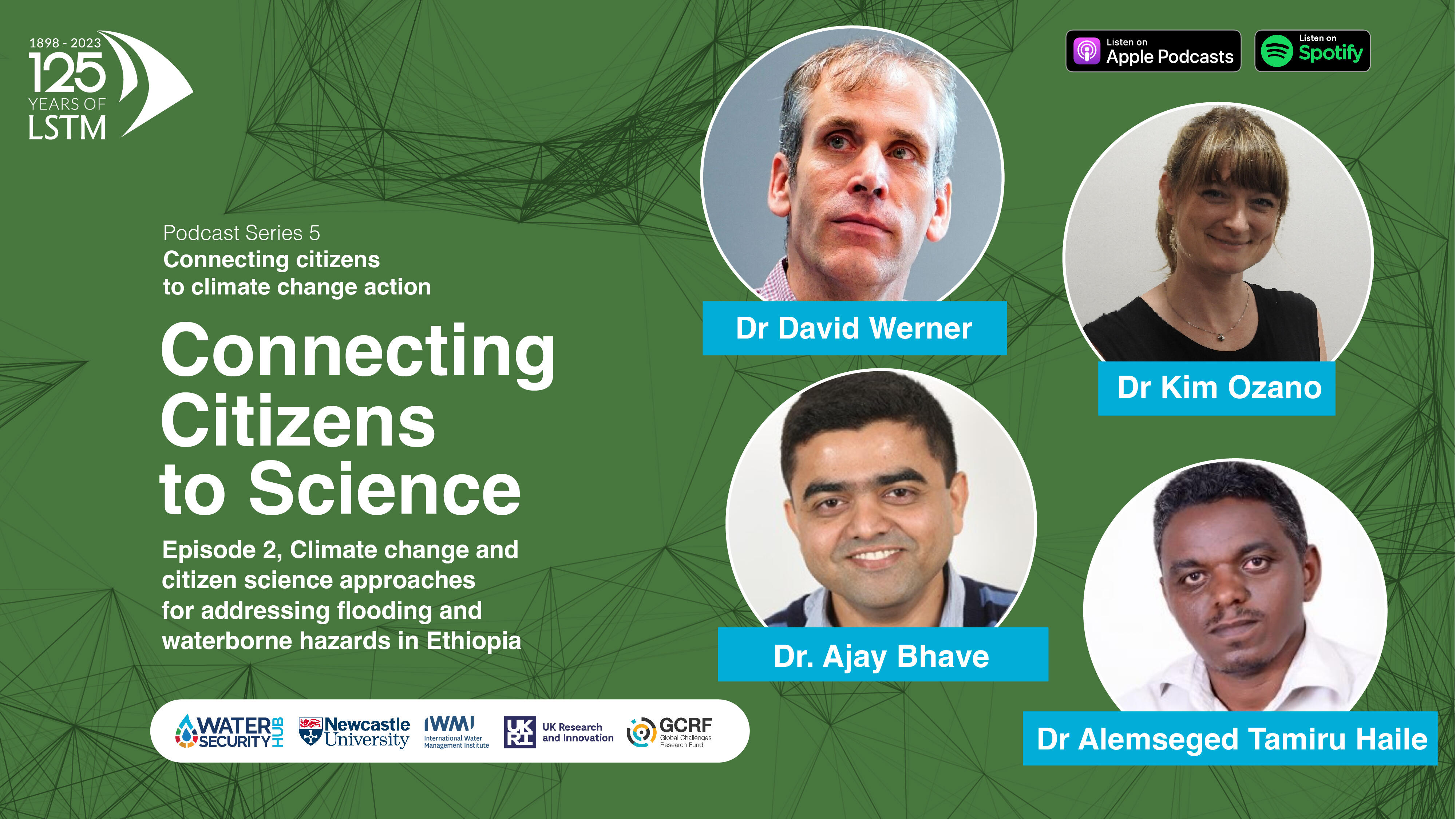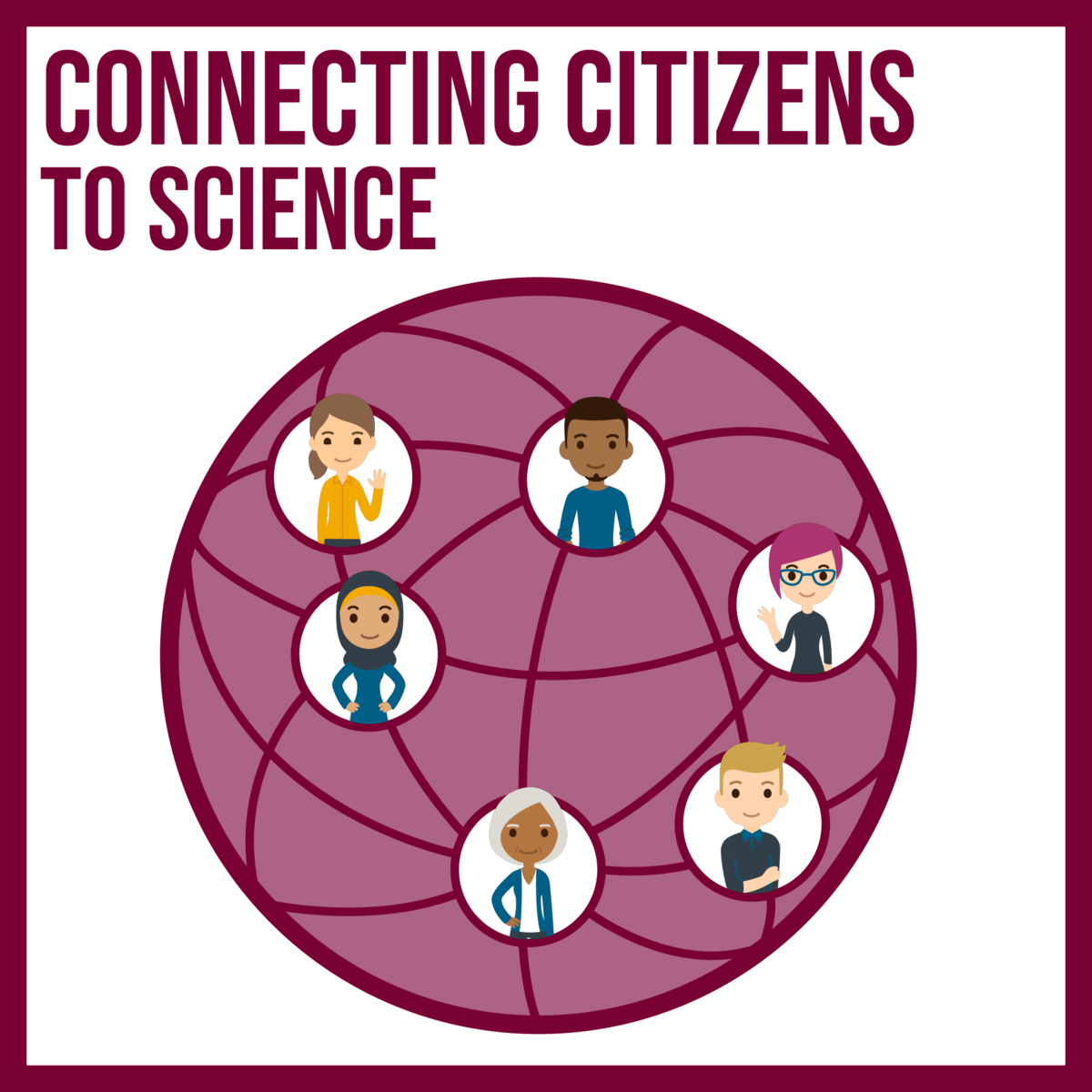
In this week’s episode we hear about citizen science approaches for tackling flooding and waterborne hazards in Ethiopia. Our guests Dr Alemseged Tamiru Haile, Senior Researcher from the International Water Management Institute and David Warne, Professor of Environmental Systems Modelling from Newcastle University are part of the GCRF Global Water Security and Sustainable Development Hub. Their work with citizen scientists aims to improve awareness and action on flooding risks and waterborne hazards in Ethiopia through co-creation of knowledge and development of new management systems for water. Our guests will share the value of citizen science approaches from enhancing community understanding of their environment to resolving data gaps for risk assessment, modelling, and better decision-making. They share with us:
- Definitions and understanding of citizen science approaches and co-creation of knowledge
- The involvement of citizens in testing water quality and flow, monitoring ecological status in aquaria, analysing and interpreting data and communicating findings to the community.
- How climate change and resulting changes in rainfall and water flow created hazards for small scale farmers which stimulated the co-design of a new early warning system by scientists, communities and government
Dr Alemseged Tamiru Haile
Senior Researcher, International Water Management Institute
Dr. Alemseged Tamiru Haile is Senior Research of hydrology and hydrological modelling at International Water Management Institute (IWMI). He earned his PhD in Spatial Hydrology at University of Twente, The Netherlands. He is leading and contributing to several research projects that aim to improve water security, fill hydrological data gaps and improve flood risk management. Alemseged enjoys sharing experience with early carrier researchers and students.
https://www.watersecurityhub.org/resources/citizen-science-bottom-management-shallow-groundwater
https://www.iwmi.cgiar.org/2020/10/can-citizen-science-help-to-fill-hydrology-data-gaps-in-ethiopia/
Dr David Werner
Professor Environmental Systems Modelling, Newcastle University
Dr. David Werner is Professor of Environmental Systems Modelling at Newcastle University, UK. He earned his PhD in Environmental Sciences at EPFL in Switzerland. He works with colleagues and communities in Africa, South America, and Asia towards ubiquitous genomics in water, sanitation, and hygiene (WASH) to achieve the United Nation’s Sustainable Development Goal 6: Clean water and sanitation for all. This includes the co-development and testing of a suitcase laboratory for water quality testing. David enjoys doing fieldwork with his colleagues and students, and life-long learning about the wonders of nature and human follies.
https://www.ncl.ac.uk/engineering/staff/profile/davidwerner.html
https://blogs.ncl.ac.uk/davidwerner/

This is a podcast in the series: Connecting Citizens to Science, which focuses on health research based on equitable partnerships between researchers and communities.